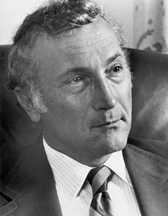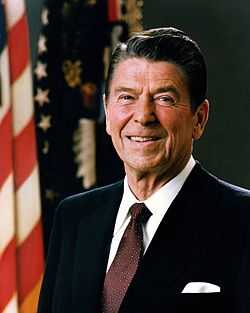Richard Schweiker
| Richard S. Schweiker | |
|---|---|
 | |
| 14th United States Secretary of Health and Human Services | |
| In office January 22, 1981 – February 3, 1983 | |
| President | Ronald Reagan |
| Preceded by | Patricia R. Harris |
| Succeeded by | Margaret M. Heckler |
| United States Senator from Pennsylvania | |
| In office January 3, 1969 – January 3, 1981 | |
| Preceded by | Joseph S. Clark |
| Succeeded by | Arlen Specter |
| Member of the U.S. House of Representatives from Pennsylvania's 13th district | |
| In office January 3, 1961 – January 3, 1969 | |
| Preceded by | John A. Lafore |
| Succeeded by | Lawrence Coughlin |
| Personal details | |
| Born | Richard Schultz Schweiker June 1, 1926 Norristown, Pennsylvania, U.S. |
| Political party | Republican |
| Spouse(s) | Claire Coleman Schweiker |
| Relations | Malcolm Alderfer Schweiker, Jr. Sylvia Schweiker Strasburg |
| Children | Malcolm Coleman Schweiker (b. 1957) Lani Lynne Schweiker (b. 1960) Kyle Claire Schweiker (b. 1965) Richard Schultz Schweiker, Jr. (b. 1967) Lara Kristi Schweiker (b. 1969) |
| Parents | Malcolm Alderfer Schweiker, Sr. Blanche Schultz Schweiker |
| Alma mater | Pennsylvania State University |
| Profession | Politician, businessman |
| Religion | Schwenkfelder Church |
| Military service | |
| Allegiance | |
| Service/branch | United States Navy |
| Years of service | 1944-1946 |
| Battles/wars | World War II |
Richard Schultz Schweiker (born June 1, 1926) is an American politician. A member of the Republican Party, he served as the 14th U.S. Secretary of Health and Human Services under President Ronald Reagan from 1981 to 1983. He previously served as a U.S. Representative (1961–1969) and a U.S. Senator (1969–1981) from Pennsylvania.
Early life
Schweiker was born in Norristown, Pennsylvania, on June 1, 1926. He was the son of Malcolm Alderfer Schweiker, Sr. (February 27, 1895 – June 12, 1982) and his wife, the former Blanche R. Schultz (December 17, 1894 – September 1974).[1] His father and his uncle worked in the tiling business for several decades.[2]
He received his early education at public schools in Worcester, and graduated from Norristown Area High School as valedictorian in 1944.[3] During World War II, he served aboard an aircraft carrier in the U.S. Navy, being discharged with the rank of electronics technician (second class) in 1946.[4]
Following his military service, Schweiker attended Slippery Rock State College for two years before transferring to the Pennsylvania State University.[1] He received a Bachelor of Arts degree in psychology from Penn State in 1950, graduating as a member of the Pi Kappa Sigma.[4] He then joined his family's business, American Olean Tile Company, rising from an assistant in the personnel department to the company's president within a few years.[3] He also became active in local Republican politics; he served as a precinct committeeman, and founded the Montgomery County chapter of the Young Republicans, of which he was also president (1952–1954).[3] He was selected as an alternate delegate to the Republican National Convention in 1952 and in 1956.[1]
Marriage and family
On June 10, 1955, Schweiker married Claire Joan Coleman, a former host of the children's television show Romper Room in Philadelphia, Pennsylvania (1954–1956). The couple had two sons and three daughters.[1]
Political career
U.S. House of Representatives
In 1960, Schweiker was elected to the U.S. House of Representatives from Pennsylvania's 13th congressional district.[4] At the time, the Montgomery County-based district included Schweiker's home town of Norristown and several affluent suburban communities in the Philadelphia Main Line. A moderate to liberal Republican, he defeated conservative incumbent John Lafore in the Republican primary.[5] In the general election, he defeated Democrat Warren Ballard, a law professor at Temple University, by a margin of 62%-38%.[6] He was elected to three more terms, never receiving less than 59% of the vote.[4]
During his tenure in the House, Schweiker served on the Armed Services Committee and the Government Operations Committee.[1] He sponsored legislation, signed into law in 1965, that provided cash awards to military service personnel for cost-cutting ideas. He also supported civil rights legislation, the creation of Medicare, increases in Social Security, and federal rent subsidies.[3] He considered running for Governor of Pennsylvania in 1966, but state Republican leaders persuaded him against it.[3]
U.S. Senate
In 1968, Schweiker was elected to the U.S. Senate, defeating two-term Democratic incumbent Joe Clark by more than 280,000 votes.[7] He was the only successful Republican statewide candidate in an election cycle that saw Hubert Humphrey win Pennsylvania by over 170,000 votes.[5] Continuing his progressive reputation in the Senate, Schweiker opposed the Vietnam War and President Richard Nixon's nominations of Clement Haynsworth and G. Harrold Carswell to the U.S. Supreme Court, and had an 89% rating from the liberal Americans for Democratic Action.[5] However, he also supported school prayer, and opposed gun control and desegregation busing.[5]
During his tenure in the Senate, Schweiker served as the ranking member on both the Labor and Human Resources Committee and the Labor, Health, and Human Services Appropriations Subcommittee.[1] Schweiker was a pioneer in increasing government spending on diabetes research, through his authoring and sponsoring of the National Diabetes Mellitus Research and Education Act. This legislation, passed by Congress in 1974, established the National Commission on Diabetes to create a long-term plan to fight the disease.
He was re-elected in 1974 after defeating his Democratic opponent, Pittsburgh mayor Pete Flaherty, despite the fact that the election cycle saw many Republican incumbents lose due to the Watergate scandal. He won 53% of the vote, the highest of any senator from Pennsylvania since 1946.[8] He was the first Republican senator ever endorsed by the Pennsylvania AFL–CIO, and even received 49% of the vote in heavily Democratic Philadelphia.
Church Committee
From 1975 to 1976, Schweiker was a member of the Select Committee to Study Governmental Operations with Respect to Intelligence Activities, headed by Idaho Senator Frank Church, investigating illegal domestic activities of the United States government's intelligence agencies.[9] The "Church Committee" found that allegations of CIA plots to assassinate Cuban Premier Fidel Castro during John F. Kennedy's presidency went unreported to the Warren Commission even though CIA director Allen Dulles was a member of the Commission.[9] These initial findings led Schweiker to call for a reinvestigation of the assassination of Kennedy.[9] Church appointed Schweiker and Colorado Senator Gary Hart to be a two person subcommittee to look into the "performance or non-performance" of intelligence agencies during the initial investigation of the assassination.[10] In its final report, the Church Committee called the initial investigation deficient and criticized the response of CIA and FBI, but stated that it had "not uncovered any evidence sufficient to justify a conclusion that there was a conspiracy to assassinate President Kennedy."[10]
On May 14, 1976, Schweiker told CBS Morning News that he believed the CIA and FBI lied to the Warren Commission.[11] On June 27, 1976, he appeared on CBS' Face the Nation and said that the Commission made a "fatal mistake" by relying on the CIA and FBI instead of using its own investigators.[12] Schweiker also stated that he felt it was possible that the White House was involved in a cover-up.[13]
Vice Presidential Nomination
In 1976, Ronald Reagan made a serious challenge against President Gerald Ford for the Republican Party nomination for President of the United States. Immediately before the opening of the Republican National Convention, Reagan promised to name Schweiker—who had a moderate voting record in the Senate—as his candidate for Vice President to balance the ticket. This was regarded as a somewhat unusual move as Reagan had not yet won the nomination. In response, U.S. Senator Jesse Helms of North Carolina encouraged a movement to draft Conservative U.S. Senator James L. Buckley of New York as the G.O.P. nominee.[14] Ford won the nomination on the first ballot by a razor-thin margin, and the Vice-Presidential nomination went to Bob Dole.[15]
Schweiker subsequently adopted a much more conservative voting record; his rating from the Americans for Democratic Action dropped to 15% in 1977.[5] In 1980, he announced he would not seek re-election to the Senate.[4]
Post-Senate career
_noframe.jpg)
Reagan's Cabinet
Schweiker accepted President Reagan's appointment as U.S. Secretary of Health and Human Services in January 1981. He held the position until he resigned in February 1983.[4] During his tenure, he worked with Reagan and House Speaker Tip O'Neill to reform Social Security, put greater emphasis on preventive medicine, reduced Medicare and food stamp grants to the states, and restricted welfare eligibility.[1]
Post-Reagan
From 1983 to 1994, Schweiker served as president of the American Council of Life Insurance, now known as the American Council of Life Insurers.[4] He has since retired and lives in McLean, Virginia.
See also
- United States Navy portal
- Rockefeller Republican
- List of Pennsylvania State University people
References
- ↑ 1.0 1.1 1.2 1.3 1.4 1.5 1.6 Sobel, Robert (1990). Biographical directory of the United States executive branch, 1774-1989. Westport, CT: Greenwood Press.
- ↑ "Malcolm Schweiker, 87, Dies; Father of Cabinet Secretary". The New York Times. 1982-06-14.
- ↑ 3.0 3.1 3.2 3.3 3.4 Current Biography. XXXVIII. H. W. Wilson Company. 1978.
- ↑ 4.0 4.1 4.2 4.3 4.4 4.5 4.6 "SCHWEIKER, Richard Schultz, (1926 - )". Biographical Directory of the United States Congress.
- ↑ 5.0 5.1 5.2 5.3 5.4 "Health and Human Services: Richard Schultz Schweiker". The New York Times. 1980-12-12.
- ↑ "Statistics of the Presidential and Congressional Election of November 8, 1960" (PDF). Clerk of the United States House of Representatives.
- ↑ "Statistics of the Presidential and Congressional Election of November 5, 1968" (PDF). Clerk of the United States House of Representatives.
- ↑ "Statistics of the Congressional Election of November 4, 1974" (PDF). Clerk of the United States House of Representatives.
- ↑ 9.0 9.1 9.2 Assassination Records Review Board (September 30, 1998). "Chapter 1: The Problem of Secrecy and the Solution of the JFK Act" (PDF). Final Report of the Assassination Records Review Board (PDF). Washington, D.C.: United States Government Printing Office. p. 3. Retrieved March 30, 2015.
- ↑ 10.0 10.1 Bugliosi, Vincent (2007). Reclaiming History: The Assassination of President John F. Kennedy. New York: W. W. Norton & Company. p. 370. ISBN 0-393-04525-0.
- ↑ "Warren Commission misled — Schweiker". Rome News-Tribune (Rome, Georgia). AP. May 14, 1976. p. 1. Retrieved March 30, 2015.
- ↑ "Schweiker cites new leads in JFK case". Beaver County Times (Beaver, Pennsylvania). UPI. June 28, 1976. Retrieved March 30, 2015.
- ↑ "Sen. Schweiker Charges White House Cover-up". Observer–Reporter (Washington, Pennsylvania). AP. June 28, 1976. p. 1. Retrieved March 30, 2015.
- ↑ Campaign 1976 / Republican Convention / Buckley NBC News broadcast from the Vanderbilt Television News Archive
- ↑ World Almanac and Book of Facts 1977
External links
- Richard Schweiker at the Biographical Directory of the United States Congress Retrieved on 2008-03-31
| United States House of Representatives | ||
|---|---|---|
| Preceded by John A. Lafore |
Member of the U.S. House of Representatives from Pennsylvania's 13th congressional district 1961–1969 |
Succeeded by Lawrence Coughlin |
| United States Senate | ||
| Preceded by Joseph S. Clark |
U.S. Senator (Class 3) from Pennsylvania 1969–1981 Served alongside: Hugh D. Scott and John Heinz |
Succeeded by Arlen Specter |
| Political offices | ||
| Preceded by Patricia R. Harris |
U.S. Secretary of Health and Human Services Served under: Ronald Reagan 1981–1983 |
Succeeded by Margaret M. Heckler |
| Party political offices | ||
| Preceded by James Van Zandt |
Republican nominee for U.S. Senator from Pennsylvania (Class 3) 1968, 1974 |
Succeeded by Arlen Specter |
| ||||||||||||||||
| ||||||||||||

